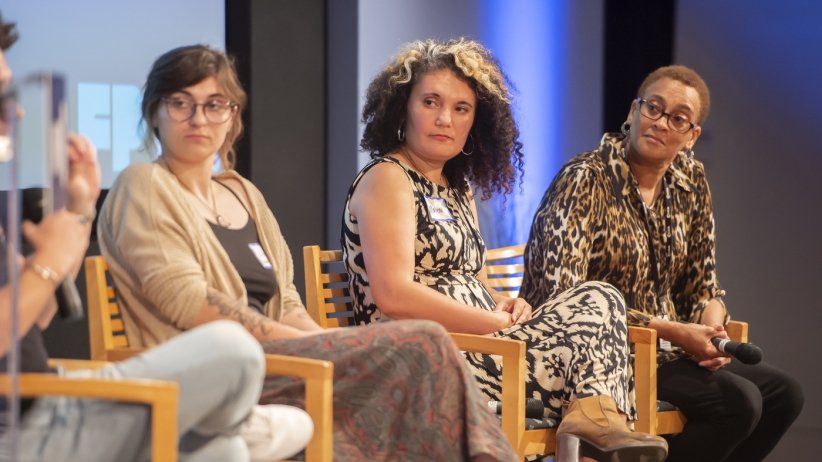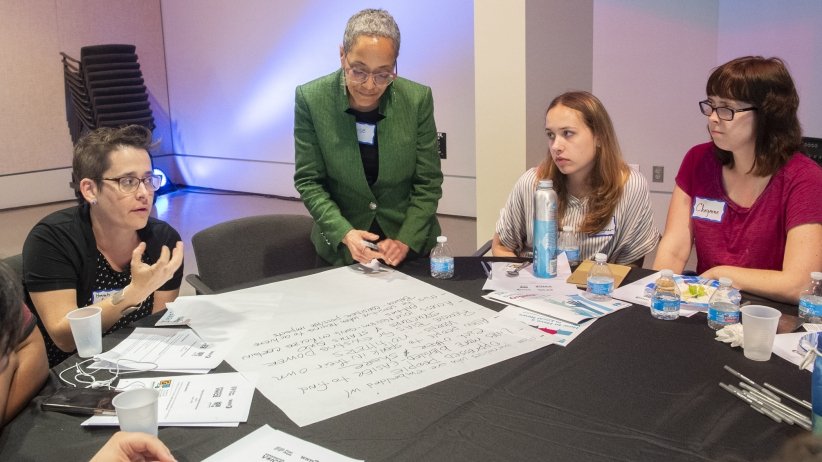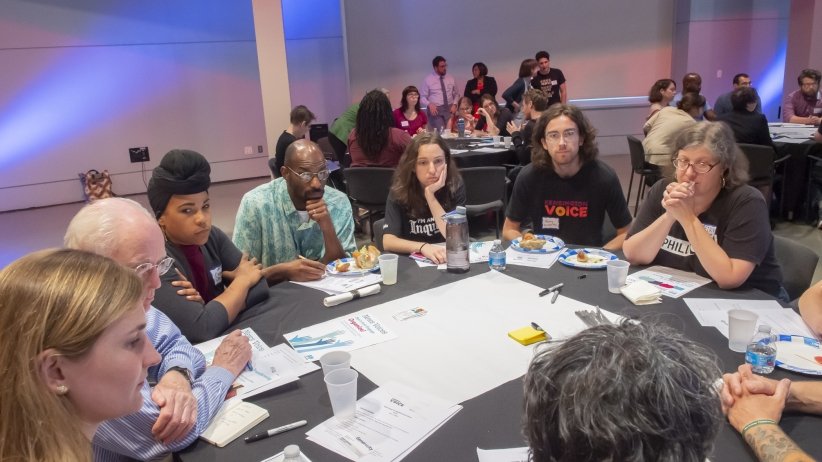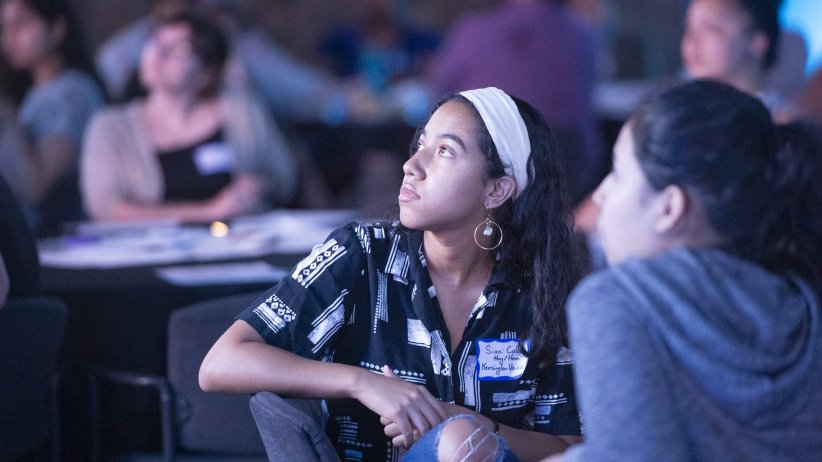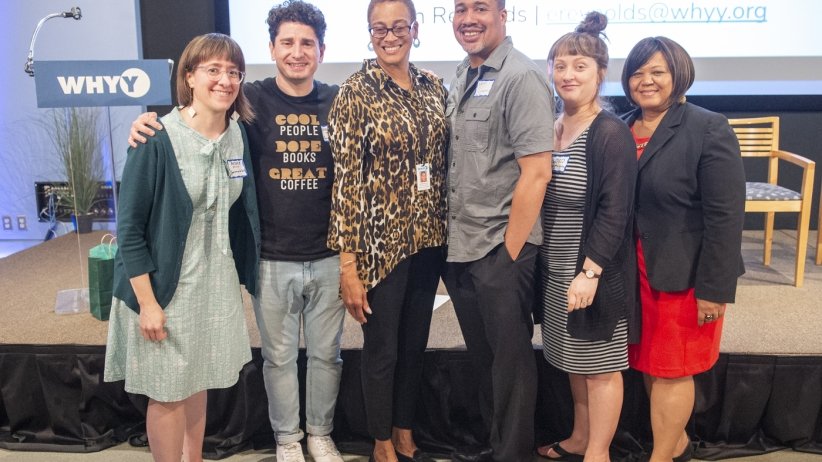6 Months of Organizing for Neighborhood News in Philly

Jonathan Wilson, WHYY
It’s five years from now. News and information in your community are stronger and more trustworthy.
What does that look like?
At WHYY on June 5, 80 Philadelphia residents and journalists considered this question as part of our Organizing for Neighborhood News project. The event, co-hosted by Free Press, Germantown Info Hub, Kensington Voice, The People’s Education Center and WHYY, focused on how community members and newsrooms can work together to strengthen local news and make it more responsive to and representative of city residents.
Organizing for Neighborhood News, with the support of the Lenfest Institute for Journalism, was a six-month pilot project that trained and mentored community members and student journalists to work with residents, developed stories with reporters and boosted information that helped counter coverage that stigmatizes people of color and others.
During the event, we shared what we had learned throughout the course of the project:
-
With resources and training, people outside of newsrooms can play active roles in finding underreported stories and engaging with community members who don’t feel represented in news coverage.
-
People want to help change narratives about their communities, and believe collaborating with journalists could facilitate this change.
-
Many journalists are willing to try new approaches to work more closely with the community.
-
Culture change and trust are hard to come by; they take time and require intentional relationship building.
We heard from three of the project’s participants: Erin Blewett, managing editor of the Kensington Voice; Maleka Fruean, a community activist and journalist from Germantown Info Hub; and Jeanette Woods, the community editor at WHYY.
The group talked about the strategies they used to build relationships with the public, including community outreach, pop-up newsrooms, tabling at crowded bus stops and hosting community conversations. By deepening connections, they were able to find underreported stories and bring people into the newsgathering process.
By sharing this project with a larger group of Philly residents, we hoped to inspire community members and journalists to explore similar projects where they live or work. Attendees asked the panelists about ways to ensure community representation and develop tactics to collaborate with people outside of the newsroom.
Maleka Fruean, @GermantownHub: “Go to where the people are, the library, outside. And be patient, if they don’t wanna get quoted, they can help you find someone to be on the record.” #NewsVoices pic.twitter.com/k6hmYHyT6O
— Media Mobilizing (@mediamobilizing) June 5, 2019
After learning about what the neighborhoods of Germantown and Kensington are doing to improve local coverage, participants broke into small groups to discuss their visions for local news in Philadelphia. People contemplated ways to evolve the relationships between journalists and community members and discussed what those roles could look like, what/whose stories are being told, who is telling these stories and what resources are available to do this work.
When it was time for people to report back, some participants discussed tactics while others addressed culture change.
People explored the need to:
-
get everyday people, including youths, involved in creating media
-
let communities, not solely newsrooms, set the news agenda(“we should think of the community as our bosses,” one journalist said)
-
listen to residents about their needs and how they get their information before launching a new project
-
address the massive inequities of power between media and communities
-
end the “us and them” journalist mentality, and start thinking about how reporters are part of the community
When we wrapped for the night, we reminded everyone that this was just a first step, and that Free Press is committed to helping people across the city start something similar in their neighborhoods. That starts by building power at the local level for residents to take the lead on transforming local media.
I really appreciated the opportunity to meet journalists and community members to discuss how community can have a voice in local news and how news outlets can improve. Left with a new outlook and great ideas. Thanks @whyy @freepress @kensingtonvoice @GermantownHub #newsvoices pic.twitter.com/QHfQATOEw3
— Siani Colón (@Siani_Colon) June 6, 2019

